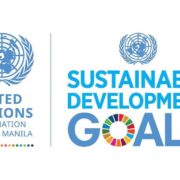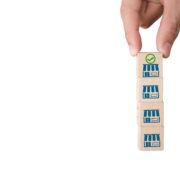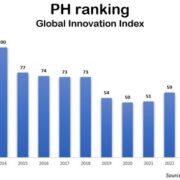 The COVID-19 pandemic is threatening to undermine the Philippines’ hard-won gains in achieving the Sustainable Development Goals (SDGs) by 2030. Thus, the Government and the United Nations (UN) are joining resources and capacities to get the country back on the SDGs track while promoting economic recovery from COVID-19.
The COVID-19 pandemic is threatening to undermine the Philippines’ hard-won gains in achieving the Sustainable Development Goals (SDGs) by 2030. Thus, the Government and the United Nations (UN) are joining resources and capacities to get the country back on the SDGs track while promoting economic recovery from COVID-19.
Secretary Karl Kendrick Chua of the National Economic and Development Authority (NEDA), together with UN Philippines Resident Coordinator Gustavo Gonzalez, launched today an innovative financing framework to implement reforms in how the government plans and budgets for the SDGs, and how it executes and monitors priority programs.
In addition, this financing framework will promote better integration of public investments in health, education and employment specifically targeting women and young people. can be achieved especially at this time when COVID-19 poses a major threat to reaping the country’s demographic dividend and achieving the SDGs.
Maximizing the demographic dividend–a key strategy of the government under the Chapter 13 of the Philippine Development Plan (PDP)–involves maximizing the gains from declining birth rates and a growing working population through investment in human capital development, particularly on adolescents and young Filipinos to enable them to reach their full potential.
Chua said, “The JP INFF will support the Government in strengthening the enabling framework and financing solutions to transform the country’s financing landscape to better support the “We Recover as One” Roadmap for Covid-19 and to bridge the financing gaps that slow down the achievement of the SDGs in the country.”
According to the UN Sustainable Development Goals Report for 2021 released in July this year, the world was off-track to achieve the SDGs even before the COVID-19 pandemic.
“Thus, this joint programme comes at a critical time,” said Gonzalez. “Sustainable finance is essential not only for recovery from the pandemic, but also from the wide-ranging effects on the achievements of the SDGs.”
“Through the Philippine Development Plan (PDP), the Philippines already has its national sustainable development strategy which lays out what needs to be financed,” added Chua.
“The Integrated National Financing Framework which this joint programme seeks to put in place will spell out how that national strategy can be implemented and financed by both public and private resources.”
In particular, the JP INFF will improve planning, budgeting, execution and monitoring to ensure targeted resources for the SDGs, and will expand alternative financing sources to fill the SDG financing gap including by bringing public and private (including innovative financing mechanisms) together under the JP INFF framework.
Gonzalez added, “If the world is to build back better and get back on a trajectory to achieve the SDGs, we need to get the right economic, social and environmental policies in place and mobilize the huge level of financing that will be required to bring those policies to scale.”
The JP INFF is being implemented by the UN Development Programme (UNDP), UN Children’s Fund (UNICEF), and UN Population Fund (UNFPA), and is being supported by the Department of Finance (DOF), the Department of Budget and Management (DBM), the Commission on Population and Development, the World Bank (WB), Council for the Welfare of Children (CWC), and private sector and civil society partners.
–
Stay updated with news and information from the UNIC Manila by visiting their website at https://philippines.un.org.






